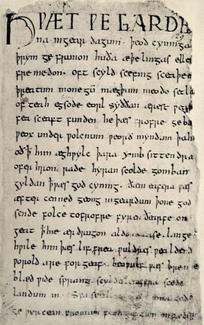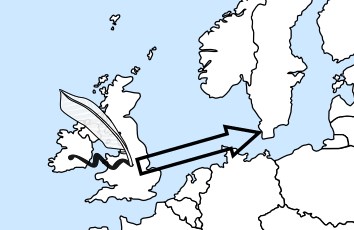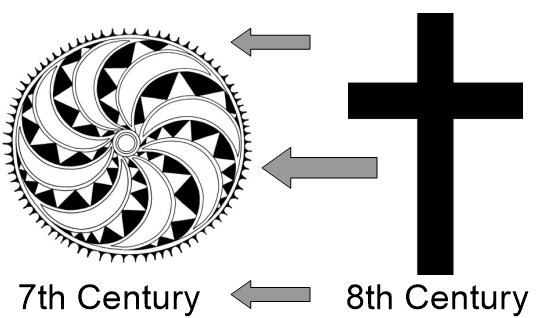
While the poem has a wide host of characters, it’s main protagonist is Beowulf, a Geat from Geatland (northern Sweden) who has traveled to the land of the Danes and the Shieldings (modern Denmark) to rid this neighboring people of the monstrous Grendel. Grendel has been attacking King Hrothgar’s mead hall for many years. Lives have been lost and none have been able to stand against this monster . . . until the heroic Beowulf arrives.
There are two keys to understanding and appreciating this ancient tale.
First, it was written in England (in Old English), but is recalling events in Scandinavia. (Primarily modern Denmark and Sweden).
In other words, the characters in the story only know their polytheistic Norse religions, but they also recognize the general truths and virtues God has established, and by responding to God’s moral order, they both serve him and are empowered by him.
But if theology isn’t your thing . . . don’t worry! We’ve got monsters here in Beowulf! Loads and loads of monsters!
The poem is divided nicely into three sections by it’s main monsters: Grendel. Grendel’s Mother, and the Wyrm Dragon.
But if monsters aren’t your thing there’s also mead (honey-wine), two word metaphors (i.e. “whale-road” for sea), boasting, arrogance, humiliation, and (for those of you who want a love story) at least one arranged marriage sub-plot!
And while Beowulf is the main character, I think my favorite is King Hrothgar! (Be sure to pronounce that ‘H’ before the ‘r’ and be sure that you spit all over your friends when you say it!) He is featured in the first two acts and portrayed as a good king. He is strong, wise, and possesses phenomenal leadership skills. (See, the poem is also a leadership book!) Unfortunately, the evil of the monster Grendel is beyond his abilities. But, like any good leader and certain title characters (ehem… Beowulf), Hrothgar is willing to accept help when he needs it.
So, before I close my overall thoughts on this wonderful poem, I wanted to share with you the “Big Idea” of the story. It is my humble and correct opinion that every story is trying to teach you something. Whether the author intended to insert a big idea or not, the entire story reflects his or her beliefs and aims to teach you.
It’s true for the Bible, it’s true for Harry Potter and it’s true for Beowulf.
[Major Spoilers Ahead]
Exegetical Idea (The “Big Idea” for the Original Audience)
Subject: What happened when Beowulf’s great triumphs over the Grendels led him to become the King of the Geats?
Complement: Because he never lined up another hero, when he died slaying the dragon he left his people defenseless against the Swedes.
“When Beowulf’s great triumphs over the Grendels led him to become the King of the Geats, because he never lined up another hero when he died slaying the dragon he left his people defenseless against the Swedes.”
Subject: What should you do when you have great abilities?
Complement: Train others so they will be equipped when you’re gone.
“When you have great abilities, you should train others so they will be equipped when you’re gone.”
Have you read Beowulf? What do you think?



 RSS Feed
RSS Feed
